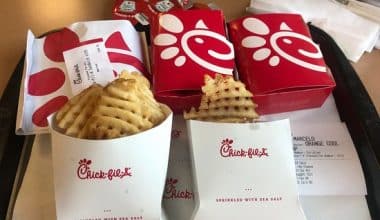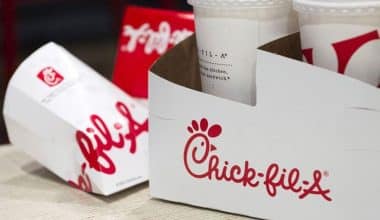Becoming a franchisor might take extensive planning, time, and financial commitment. If you have a business idea, franchising can be an effective way to grow the business. But before that, you should know what the term means. This article, however, defines a franchisor, the pros and cons, and how to create a business, whether a restaurant like McDonalds or one for sale.
What Is Franchisor?
A franchisor is a person or company that grants a license to an individual or company (the franchisee) to do business under the franchisor’s name and trademark. They also provide the franchisee with an operating manual, training, and ongoing support.
The benefits of being a franchisor are that you can expand your business quickly and with less risk than starting a new business from scratch. You also have control over how your brand is represented and can ensure that franchisees provide a high level of customer service.
The downside is that you have less control over day-to-day operations and must rely on franchisees to uphold your brand standards. There is also the potential for high initial costs, as you must develop and pay for the franchise materials.
What Is The Role Of The Franchisor?
- The franchisor provides the franchisee with a license to use the company’s name, logo, and business model.
- They also provide training, marketing, and support to the franchisee.
- Meanwhile, their aims to help the franchisee succeed. They do this by providing a proven business model, training, and support.
- In addition, they benefits from the success of the franchisee, as the franchisee’s success leads to increased brand awareness and more customers for the franchisor.
How To Start Your Own Franchisor Business
Starting your own franchisor business can be a daunting task, but with the right planning and execution, it can be a rewarding experience. There are a few key things to do to get your business off the ground.
- First, you need a unique and innovative concept that you can franchise. This is perhaps the most important step in starting your own franchisor business. Your concept needs to be something in demand and that people are willing to pay for. It also needs to be something you are passionate about and can see yourself doing long-term.
- Once you have your concept, you need to develop a business plan. This plan should outline your goals, target market, marketing strategy, and financial projections. This plan will be essential in helping you get funding for your business and get people on board with your concept.
- After you have your business plan in place, you need to start working on developing your brand. This includes a name, a logo, and an overall look and feel for your business. Your brand should be something people can easily recognize and represent your company well.
- Last but not least, market your franchise opportunity to potential franchisees. When marketing your franchise, highlight the benefits of becoming a franchisee, such as the support and assistance you’ll be providing.
Can Franchisor Business Be Put For Sale?
The answer is yes, you can put the franchisor business for sale. But it also relies on the provisions of your franchise agreement. You must determine if your franchisor has imposed conditions on how you can run and market the franchise.
For instance, you might have heard of a right of first refusal. This simply means that before you sell the franchise to anyone else, you must give the franchisor to purchase it. You can only put it up for sale if they reject it first. To put it another way, give precedence to the franchisor by selling it back to them.
Who Is A Restaurant Franchisor?
A restaurant franchisor is a company that owns the rights to a particular restaurant brand and offers those rights to franchisees. The franchisor provides franchisees with a template for running the business, including the restaurant’s name, logo, and menu. They also offer support in marketing, training, and Supply Chain Management.
The franchisor-franchisee relationship is governed by a franchise agreement, which is a legally binding contract. The agreement spells out the franchisor’s obligations to the franchisee, as well as the franchisee’s obligations to the franchisor. For example, the restaurant franchisor may provide marketing support, while the franchisee pays royalties and adheres to the franchisor’s operating standards.
Hence, the benefits of franchising for a restaurant brand include accelerated growth, greater brand awareness, and improved economies of scale. For franchisees, franchising offers the ability to start a business with an established brand name and proven business model. When done correctly, franchising can be a win-win proposition for franchisors and franchisees.
Who Is The Franchisor Of McDonalds?
The franchisor of McDonalds is the Mcdonald’s Corporation. The McDonalds Corporation is a publicly-traded company that was founded in 1940. The company is headquartered in Oak Brook, Illinois. The McDonald’s Corporation franchises and operates Mcdonald’s restaurants in over 100 countries.
However, Mcdonald’s Corporation is one the largest fast food restaurant companies in the world. The company has over 36,000 restaurants in over 100 countries. Additionally, it generates over $24 billion in revenue and employs over 1.8 million people.
How Does A Franchisor Make Money?
A franchisor typically makes money in one of two ways: either through royalties or through a flat fee. Royalties are a percentage of the franchisee’s sales that goes back to them. While a flat fee is a one-time payment for the franchisor’s name and intellectual property.
In some cases, they may also make money by charging for marketing or advertising services or selling supplies to franchisees at a markup. However, these methods are less common than royalties or flat fees.
Ultimately, a franchisor wants to make money by helping its franchisees be successful. By providing a proven business model, ongoing support, and access to their brand, a franchisor can give their franchisees the best chance at success. In turn, this success will lead to royalty payments or flat fees that will help them make money.
The Pros And Cons Of Being A Franchisor
There are many pros and cons of being a franchisor. Some of the pros include:
- As a franchisor, you will have the opportunity to build a brand that customers will recognize and trust.
- You can replicate a proven business model that has already been successful.
- Also, you’ll have access to a network of other franchisees who can provide support and advice.
- Finally, you may receive financial assistance from the franchisor in the form of marketing and advertising funds.
Some of the cons include:
- You will have less control over how franchisees operate their businesses.
- You may have to provide ongoing training and support to franchisees.
- Sometimes, you may be liable for the actions of franchisees.
- And lastly, you may have to deal with negative publicity if a franchisee business fails.
Before deciding if franchising is the right path for your business, weigh the pros and cons carefully. If you think franchising could be a good fit, research different franchise opportunities and talk to experienced franchisees to understand what’s involved.
Is A Franchisee An Owner?
A franchisee is an owner of a franchised business. They have purchased the rights to use the franchisor’s name, logo, and business model. A franchisee is an independent business owner, not an employee of the franchisor. Meanwhile, they operate their business following the franchisor’s guidelines and paying all fees and royalties.
While a franchisee is not an employee of the franchisor, they have an ongoing relationship with them. The franchisor provides support and guidance to help the franchisee succeed. They also benefit from the franchisee’s success, as they receive a portion of the revenue.
What Is Franchisor vs Franchisee?
A franchisor is a company that licenses its brand and business model to franchisees. While a franchisee is an individual or company that purchases a franchise from a franchisor.
However, a franchise agreement governs the franchisor-franchisee relationship. The franchisor grants the franchisee the right to use its brand and business model in exchange for a franchise fee and ongoing royalties. Following this, the franchise agreement outlines the franchisor’s obligations including providing training and support. And the franchisee’s obligations, including adhering to the franchisor’s standards.
In addition, the franchisor-franchisee relationship is a symbiotic one; the franchisor benefits from the franchisee’s efforts to grow the brand, and the franchisee benefits from the franchisor’s established reputation and business model.
Who Is Franchisor And Franchisee Examples?
A franchisor is a person or company who owns the rights to a particular franchise and licenses those rights to a franchisee. A franchisee is a person or company that purchases a franchise from a franchisor.
One of the most famous franchises in the world is McDonald’s. McDonald’s grants franchises to independent business owners who operate McDonald’s restaurants. The franchisees are responsible for the day-to-day operations of the restaurants, while McDonald’s provides them with training, support, and the McDonald’s brand.
Another well-known company is 7-Eleven. 7-Eleven franchises convenience stores around the world. The franchisees who operate 7-Eleven stores are responsible for stocking the shelves and providing customer service. While 7-Eleven offers them the products, support, and the 7-Eleven brand.
Additionally, there are many other examples of franchisors and franchisees. Some other franchisors include Subway, KFC, and Dunkin’ Donuts.
Who Is A Franchisor Example?
A good example of a franchisor is McDonalds. McDonald’s is a global company that grants franchises to individual restaurateurs. The franchisees are granted the right to use the McDonald’s name and logo, as well as the company’s business model. McDonald’s provides its franchisees with guidance and support in operating their restaurants, including training, marketing, and financial assistance.
Conclusion
In conclusion, a franchisor is an entity that grants a license to another party for the right to do business under the franchisor’s name and to sell the franchisor’s products or services. Franchises are a popular way to start a business, as they provide the franchisee with an already-established brand and a proven business model.
However, there are also some drawbacks such as the high initial investment and the lack of complete control over the business. Before starting a franchise, consider all the pros and cons carefully.




